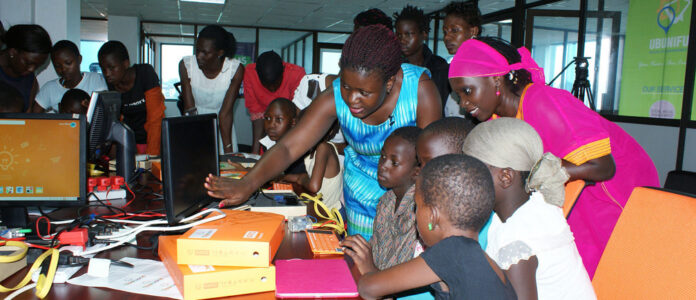Internet penetration in Liberia improved in 2022, with 22% of the country’s population gaining access to online spaces. But as the country’s internet penetration rate improved, so did its population also expand (by 124,000), a fact that translates into more pressure on national resources, including digital infrastructure.
Also, all of these developments have not really done much to improve the participation of women, who constitute 49.7 percent of the country’s population, online. As this advocacy paper points out, it is still the case that women are more likely, than men, to be offline because of dissuading factors such as high cost of data and digital devices.
The situation is even worse for women who are a part of the 46.9% of citizens who live in rural areas.
But as is reiterated in this advocacy paper, the factors preventing women from going online are age-old in nature, and their continuance is in spite of the fact that Liberia has a generally, positive policy environment for women’s rights. For starters, Liberia is party to a number of regional and international frameworks that recognize the importance of promoting women’s digital rights. The country also has a national gender policy.
It is clear that the disconnect between the positive policy environment and the continued sabotage of women’s access to the internet by age-old problems is due to gaps in the existing policies on gender. For example, even though the country’s national Gender Policy is a document in active implementation, there are no specific policies and frameworks on women’s rights online.
Again because there are no specific policies and frameworks on women’s rights online, the policy environment is bereft of specific vehicles for targeted programmes for improving women’s digital rights.
To respond to these challenges, this paper advocates that gender principles are mainstreamed into existing policies and frameworks, such as the national gender policy and national educational policy.
In addition to this, there is a call for Liberia to bolster its existing laws with specific legislation on online, gender-based abuses. The Liberian government is also urged to expand reliable internet infrastructure into rural Liberia.
Meanwhile, stakeholders, including civil society organisations, which have already done a lot for women’s digital rights in Liberia, have been called upon to collaborate more in order to expand their positive impact. Among other things, this paper advocates that they carry out more educational campaigns to help build the digital capacities of women.
Kindly click here to read the advocacy paper.
